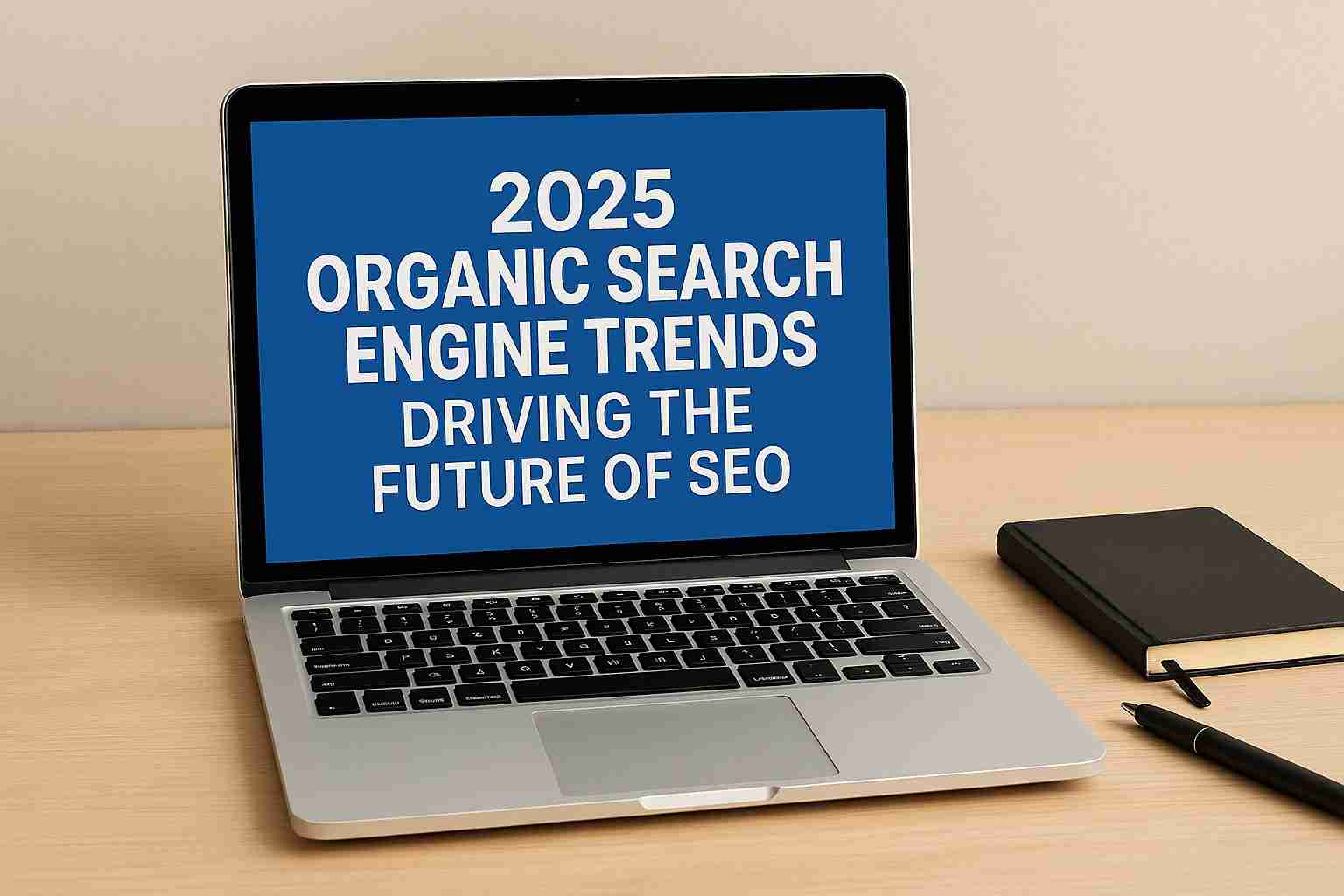
About Us
WebDesignVR works with both small and large companies to provide them with one-of-a-kind professional solutions for their businesses.
View More
WebDesignVR works with both small and large companies to provide them with one-of-a-kind professional solutions for their businesses.
View More
29 Sep 2025 SEO Guide Admin
The organic search engine space is rapidly changing in 2025. AI-enabled features, user intent changes, and shifts in platforms are changing the SEO landscape - not killing it. Google still serves up over 5 trillion searches a year, and video-search site YouTube is still the world's second-largest search engine
It is even becoming clearer where, or how, searchers can find their results. AI-generated summaries, for example, Google AI overviews (AIO) and answer engines (e.g., ChatGPT, Perplexity, etc.) are changing this landscape. None of these seems to be killing SEO, although they do suggest some new strategies for SEO..
Searches in 2025 will be based increasingly on generative engines. Google's AI-generated summaries that show up on results pages are now used on about 20% of searches, after being launched at scale in late 2024. Inquiry-based search engines, including ChatGPT and Perplexity, are also starting to take away a small but growing number of queries.
One consideration of the AI answers will be more zero click searches (answers provided directly on the search page). But, at the same time, it creates a new avenue for visibility to new audiences. For instance, research conducted by Semrush found that AI Overviews often cite sites that might not have ranked at all in the traditional top 10 of searches.
_1759149353.png)
Zero-click searches (where the answer is shown on the SERP) are a hot topic in 2025. With AI overviews and featured snippets being more common, fewer users click through to websites for basic facts. However, this doesn’t mean traffic is vanishing. According to TheeDigital’s analysis of 35,000 sites, overall organic search engine traffic still grew because total search volume is rising faster than the zero-click rate.
Consider how different query types behave (see table below). Informational queries (like “how to do X”) now have a very high zero-click rate (often above 60%), while commercial or navigational queries (comparisons, product searches) still drive clicks.
|
Funnel Stage |
Example Queries |
% of Searches |
Zero-Click Rate |
|
Top-of-Funnel (TOFU) |
“How to fix a bike” (informational) |
52.7% |
High (often >60%) |
|
Middle-of-Funnel (MOFU) |
“Best road bikes 2025” (commercial) |
14.5% |
Moderate (~50–60%) |
|
Bottom-of-Funnel (BOFU) |
“Brand bike store near me” (transactional/ navigational) |
32.8% |
Low (usually <20%) |
Strategies for zero-click: Rather than panic, use zero-click results to your advantage. Optimize snippets and schema so your brand appears in the answers. As NP Digital notes, zero-click is not new, but AI has accelerated it. Most users still want more detail; only 15% of people say they never click after seeing an AI overview. So provide that depth and earn those clicks.
There is a new thing: generative engine optimization (GEO). Basically, this means creating content for AI-centric search engines and assistants. What does this look like in practice?
User search intent is changing, and SEO needs to realign. As search results exist on a screen, your content type is more important than ever. Experts mostly agree on moving from simply chasing traffic to capturing revenue and user action.
Search engine results have moved away from pure text. Rather, Google and the other engines rely heavily on structured data search and various types of content:
To stay competitive in 2025 and beyond, broaden your strategy beyond just on-page SEO
Despite talk of SEO’s demise, data shows organic search engine is evolving, not disappearing. Even as some sites lose ground, others find traffic and conversions by embracing AI-savvy tactics. As per Neil Patel’s reports, a test on 30,000 sites showed increased organic traffic despite Google’s AI overviews.
_1759150122.png)
To grow, focus on real-world value - create helpful, expert content, build your brand reputation, and meet users wherever they search. SEO today is more about understanding people than tricking algorithms. Search intent is changing, but it still revolves around answering questions and solving problems.
At WebdesignVR, we help businesses navigate this new search landscape. Our SEO specialists stay on top of trends from AIO to structured data search and changing user behavior. We work with clients to build strong brand authority, optimize content for voice and visual search, and integrate data-driven strategies that account for AI. If your organic rankings need a 2025 refresh, partnering with an agency that understands these trends can make the difference. Organic search engine ranking still matters; it’s just time to adapt.
organic search engine, organic search engine ranking, generative engine optimization 2025, zero click searches, structured data search, search intent, AI overviews.

Lorem Ipsum has been the industry's standard dummy text ever since the 1500s, when an unknown printer took a galley of type and scrambled it to make a type specimen book.